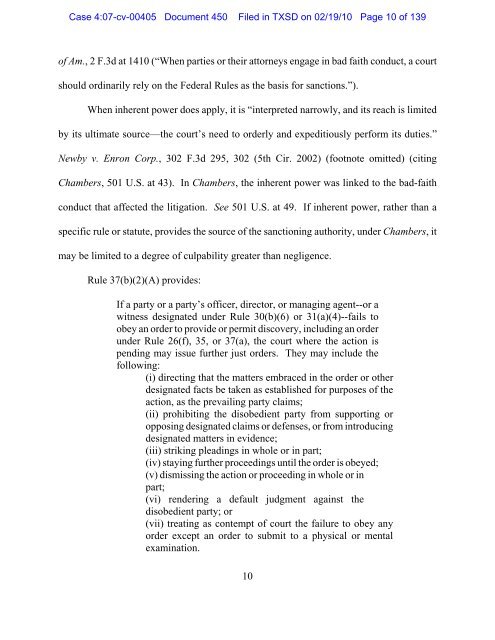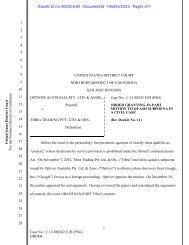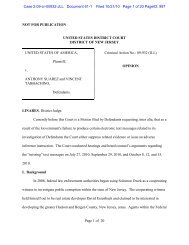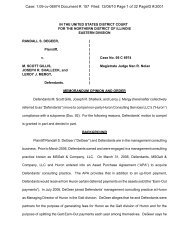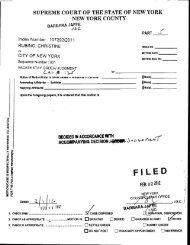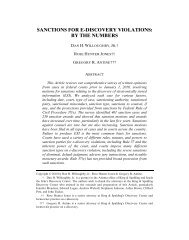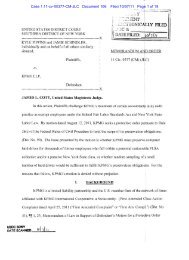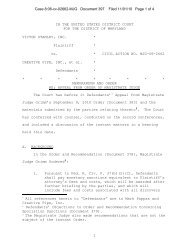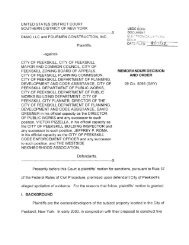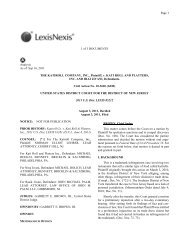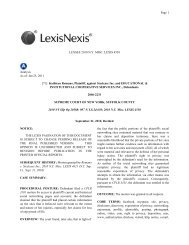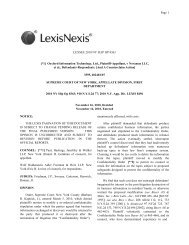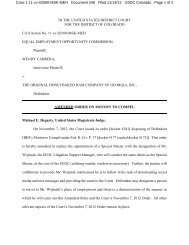Rimkus Consulting Group Inc. v. Cammarata - Ballard Spahr LLP
Rimkus Consulting Group Inc. v. Cammarata - Ballard Spahr LLP
Rimkus Consulting Group Inc. v. Cammarata - Ballard Spahr LLP
Create successful ePaper yourself
Turn your PDF publications into a flip-book with our unique Google optimized e-Paper software.
Case 4:07-cv-00405 Document 450 Filed in TXSD on 02/19/10 Page 10 of 139<br />
of Am., 2 F.3d at 1410 (“When parties or their attorneys engage in bad faith conduct, a court<br />
should ordinarily rely on the Federal Rules as the basis for sanctions.”).<br />
When inherent power does apply, it is “interpreted narrowly, and its reach is limited<br />
by its ultimate source—the court’s need to orderly and expeditiously perform its duties.”<br />
Newby v. Enron Corp., 302 F.3d 295, 302 (5th Cir. 2002) (footnote omitted) (citing<br />
Chambers, 501 U.S. at 43). In Chambers, the inherent power was linked to the bad-faith<br />
conduct that affected the litigation. See 501 U.S. at 49. If inherent power, rather than a<br />
specific rule or statute, provides the source of the sanctioning authority, under Chambers, it<br />
may be limited to a degree of culpability greater than negligence.<br />
Rule 37(b)(2)(A) provides:<br />
If a party or a party’s officer, director, or managing agent--or a<br />
witness designated under Rule 30(b)(6) or 31(a)(4)--fails to<br />
obey an order to provide or permit discovery, including an order<br />
under Rule 26(f), 35, or 37(a), the court where the action is<br />
pending may issue further just orders. They may include the<br />
following:<br />
(i) directing that the matters embraced in the order or other<br />
designated facts be taken as established for purposes of the<br />
action, as the prevailing party claims;<br />
(ii) prohibiting the disobedient party from supporting or<br />
opposing designated claims or defenses, or from introducing<br />
designated matters in evidence;<br />
(iii) striking pleadings in whole or in part;<br />
(iv) staying further proceedings until the order is obeyed;<br />
(v) dismissing the action or proceeding in whole or in<br />
part;<br />
(vi) rendering a default judgment against the<br />
disobedient party; or<br />
(vii) treating as contempt of court the failure to obey any<br />
order except an order to submit to a physical or mental<br />
examination.<br />
10


